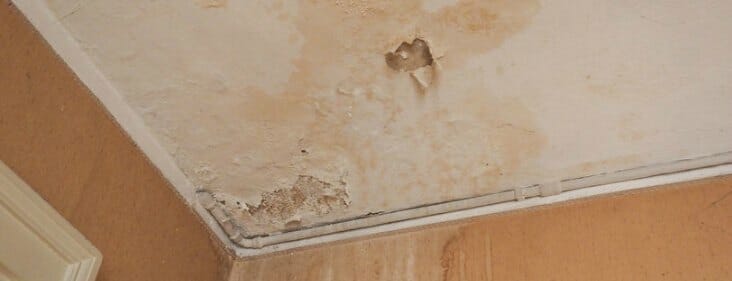Your Residential Most Typical Leak Triggers: Examination
Your Residential Most Typical Leak Triggers: Examination
Blog Article
The content down below on the subject of Top Causes of Home Water Leaks is highly remarkable. Read it yourself and decide what you think of it.

Leakages not just create waste of water but can also cause unnecessary damage to your house as well as advertise undesirable natural development. However, water leaks might go undetected given that most of the pipework in our residence is concealed. By looking and comprehending for everyday circumstances that create leakages, you can shield your house from future leaks as well as unneeded damage. Today, we will certainly look at six leak creates that may be causing your pipelines to leak.
Immediate temperature changes.
Severe temperature level modifications in our pipes can create them to broaden and get all of a sudden. This growth and tightening may cause cracks in the pipes, particularly if the temperature are below freezing. It would certainly be best if you kept an eye on how your plumbing works. The visibility of the previously stated circumstances frequently shows a high risk.
Rusty water systems
This may be the reason of staining or warping on your water pipelines. If our plumbing system is old, take into consideration replacing the pipelines given that they are at a greater danger of corrosion than the newer versions.
Faulty Pipeline Joints
The factor at which your pipes link is regularly the weakest web link in the waterline. Pipeline joints can deteriorate in time, leading to water leakages. The bulk of pipe joints are not conveniently noticeable. If you have noisy pipelines that make ticking or banging noises, especially when the warm water is switched on, your pipe joints are most likely under a great deal of stress. It is recommended to have your plumber check your system annually.
Encroaching roots
Most water leaks begin outside your home as opposed to inside it. If you notice an abrupt decline in water stress, say in your tap, take time to head out and examine your yard. You might notice damp patches or sinkholes in your yard, which might mean that tree origins are getting into water lines causing water to permeate out. You can have your plumber check for intrusion, specifically if you have trees or shrubs near your residential property.
Poor Water Connectors
At times, a leak can be created by loose hose pipes and also pipelines that provide your devices. In case of a water connections leakage, you may discover water running directly from the supply line or puddles around your devices.
Blocked Drains
Clogged drains pipes might be irritating and also inconveniencing, but they can often end up triggering an overflow bring about burst pipes. Maintain getting rid of any materials that might drop your drains that could block them to prevent such aggravations.
All the above are causes of leakages however not all water leaks result from plumbing leakages; some leakages may originate from roof covering leakages. All leakages must be fixed promptly to stay clear of water damages.
Leaks not only cause waste of water yet can also trigger unnecessary damages to your residence and also promote undesirable organic growth. By looking and also recognizing for everyday scenarios that create leaks, you can safeguard your house from future leaks and unnecessary damage. Today, we will certainly look at 6 leak triggers that may be creating your pipes to trickle.
At times, a leak can be triggered by loosened hose pipes and also pipes that supply your devices. In case of a water connections leakage, you might notice water running directly from the supply line or pools around your devices.
How To Check For Water Leak In Your Home
How To Check for Leaks
The average household's leaks can account for nearly 10,000 gallons of water wasted every year and ten percent of homes have leaks that waste 90 gallons or more per day. Common types of leaks found in the home are worn toilet flappers, dripping faucets, and other leaking valves. These types of leaks are often easy to fix, requiring only a few tools and hardware that can pay for themselves in water savings. Fixing easily corrected household water leaks can save homeowners about 10 percent on their water bills.
To check for leaks in your home, you first need to determine whether you're wasting water and then identify the source of the leak. Here are some tips for finding leaks:
Take a look at your water usage during a colder month, such as January or February. If a family of four exceeds 12,000 gallons per month, there are serious leaks.
Check your water meter before and after a two-hour period when no water is being used. If the meter changes at all, you probably have a leak.
Identify toilet leaks by placing a drop of food coloring in the toilet tank. If any color shows up in the bowl after 10 minutes, you have a leak. (Be sure to flush immediately after the experiment to avoid staining the tank.)
Examine faucet gaskets and pipe fittings for any water on the outside of the pipe to check for surface leaks.
Undetected water leaks can happen without the home or business owner even realizing. If you suspect a water leak, but not able to find the source. It is time to contact a professional water leak detection service, The Leak Doctor.
How To Find a Water Leak In Your Home
https://www.leakdoctor.com/blog/How-To-Check-For-Water-Leak-In-Your-Home_AE197.html

As an enthusiastic person who reads on Most Common Causes of Leaky Pipes, I figured sharing that post was sensible. Feel free to take the opportunity to distribute this blog post if you liked it. Thanks a bunch for your time. Visit again soon.
Call now! Report this page